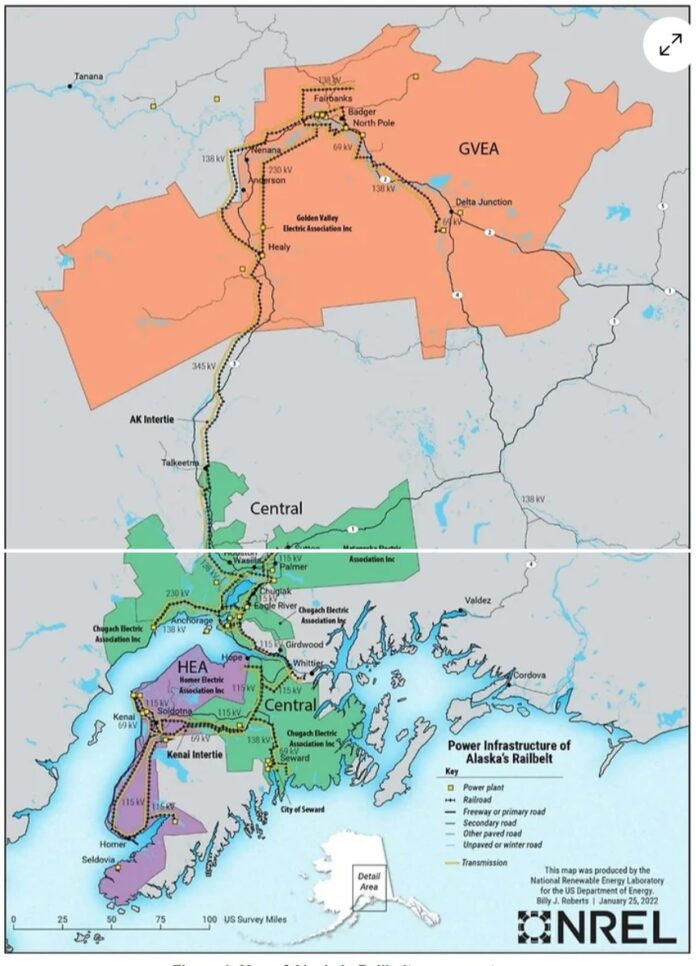By ROBERT SEITZ
I was excited the Alaska Legislature engaged in efforts to encourage production of Cook Inlet gas.
I was, however, very disappointed when a legislator could not move forward a bill to reduce royalty payments on Cook Inlet gas because he could find no certainty it would work to increase production.
This much is clear: It can’t work if not passed. Whether or not it would work is not the point, but that it might work is worth a try.
Southcentral Alaska is desperate for increased production of Cook Inlet gas. I’m not sure what the other Cook Inlet gas bills that died would have done, had they passed, but I will do more research to understand the driving force behind the reluctance to get on board for energy security in Alaska.
Carbon sequestration is something possibly useful for gasification of coal or some other energy process, so it could be a beneficial tool for our state’s energy tool box. Simply storing someone else’s CO2 does not excite me, but if it can bring in some money while we figure out just what our energy policy needs to be — green or hydrocarbon — it’s worth a try.
House Bill 307 was greatly modified from the original submission on Feb. 2, especially modified on the last day of session, May 15. I remain concerned much of the text may contain hidden landmines that could be used to deviate from the original intent and force more renewable sources to the system, even if the system is not ready for more variable sources.
The ERO (Electrical Reliability Organization) and the RTO (Railbelt Transmission Organization) discussed in H.B. 307 seem patterned after similar organizations in other states for the sole purpose of forcing wind and solar expansion to local utilities. We could have done better in Alaska to plan for altering our electrical power system to match the severity of our winters, thus ensuring we all survive the cold and dark.
Long-term planning with step-by-step engineering is needed for the long-duration energy storage necessary, and to make sure we have the means to capture excess variable energy produced, so we have it when we need it most. Mandating is not the solution.
I am also concerned that with H.B. 307, additional power generation from hydrocarbon fuel could be denied and there is no provision or recommendation for planning for the Railbelt system.
As I have been stating for eight years, for wind and solar distributed resources to be successful, we need energy storage means, such as pumped hydro, which would allow all excess solar and wind generation to be captured for use during the cold and dark months.
I was certain that the Railbelt Transmission Organization would not be fully implemented until the new transmission line was designed and being installed. It may be quite difficult to identify portions of the system which are transmission line within some of the utilities and for them to be given over to the RTO.
The key to the healthy growth of the Railbelt power system is continued production of Cook Inlet gas, which will provide time for the development of whatever wind and solar might be added, inclusion of pumped hydro or other energy storage and any other less variable sources such as geo thermal or Cook Inlet tidal. One major goal is to develop our system to produce more and cheaper energy to support refining processes for the ore produced in Alaska, so we can build whatever our future economy will be driven by.
The Alaska Sustainable Energy Conference is this week. I look forward to hearing more about viable solutions to Alaska’s energy needs.
My next commentary will address the claim that Alaska is warming two to four times faster than the rest of the planet. It doesn’t feel like it to me, so I dug into the data.
Robert Seitz is a professionally licensed electrical engineer and lifelong Alaskan.
